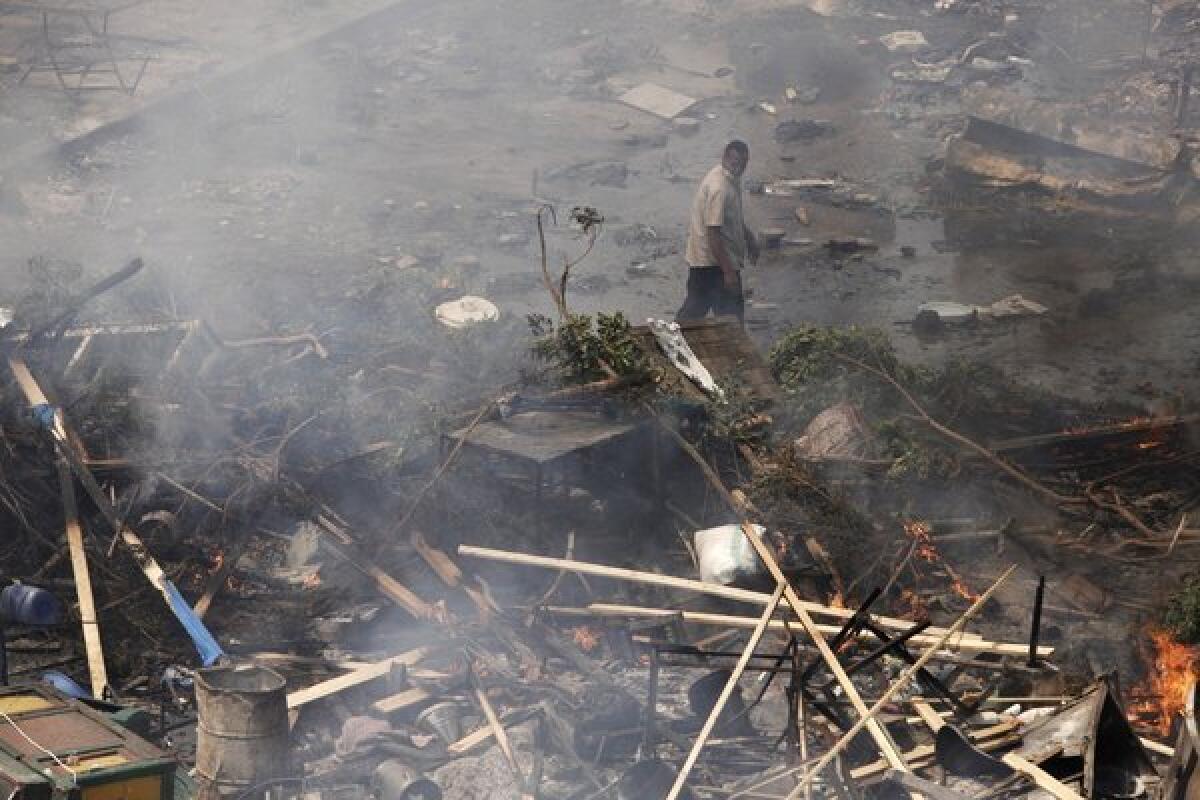Egypt’s ominous path

- Share via
When the Egyptian military overthrew Mohamed Morsi in July, little more than a year after he was elected president, it insisted that it was acting as a guardian of democracy and political pluralism. Whatever credibility that claim may have had at the time, it was shattered Wednesday by a bloody crackdown on pro-Morsi protesters that was followed by imposition of a monthlong state of emergency.
The violent assault on two encampments in Cairo wasn’t necessary to secure the continued control of the country by the Egyptian armed services and the interim civilian administration it installed. But, ignoring calls for restraint, the military launched a combat-style operation to disperse demonstrators, resulting in the deaths of some 275 people, by the government’s own estimate, and inciting predictable reprisals by Morsi’s supporters, including attacks on Christian churches.
The crackdown has alienated not just the Muslim Brotherhood but secular Egyptians who had felt marginalized by Morsi and his Islamist government. Mohamed ElBaradei, the former United Nations nuclear official, resigned as vice president, saying that “I cannot bear the responsibility for one drop of blood.” ElBaradei’s decision was understandable: He had been the most influential official voice for moderation, but he also understood that his presence in the government lent credence to the military’s insistence that it was interested in a swift restoration of democracy and engagement with all segments of Egyptian society.
The Obama administration, which had dispatched its deputy secretary of State to Cairo last week to press for a compromise between the military and Morsi’s Muslim Brotherhood, said Wednesday that it “strongly condemns the use of violence against protesters in Egypt” and expressed opposition to imposition of a state of emergency. Secretary of State John F. Kerry called the crackdown “deplorable.”
But statements of dismay go only so far. The administration continued to temporize over whether Egypt would pay a price in the form of any reduction in the $1.5 billion in mostly military aid it receives annually from Washington. A White House spokesman said the administration was “continuing to review our posture and our assistance to the Egyptians.”
Notwithstanding Morsi’s overthrow, there has been broad and bipartisan support in Washington — so far — for a continuation of U.S. aid, which is essentially an insurance policy on Egypt’s peace treaty with Israel. Only two weeks ago, the Senate voted 86 to 13 against a proposal by Sen. Rand Paul (R-Ky.) to cut off aid. But at some point the U.S. must be prepared to match its exhortations with actions — significant actions, not just symbolic ones such as delays in weapon deliveries or the cancellation of joint military exercises.
Even as he condemned Wednesday’s violence, Kerry said he thought the path to a political solution was “still open.” But if the Egyptian military blocks that path, there should be consequences.
More to Read
A cure for the common opinion
Get thought-provoking perspectives with our weekly newsletter.
You may occasionally receive promotional content from the Los Angeles Times.










